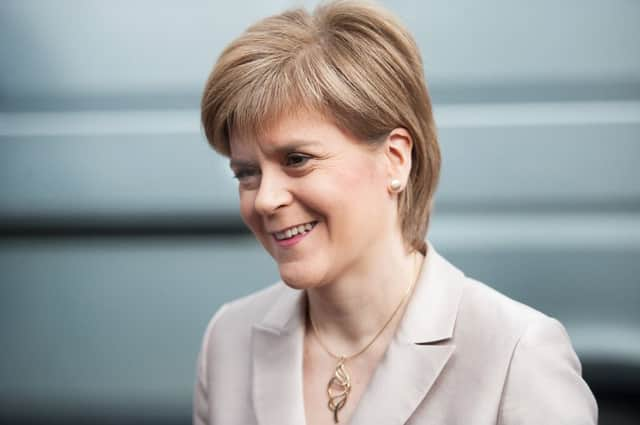Leaders: Voters deserve clearer details


There is the matter of an as-yet unknown civil servant’s views of a meeting between First Minuter Nicola Sturgeon and French diplomats. In a government memo it was apparently recorded that Ms Sturgeon advocated during the meeting it would be best if David Cameron remained in Downing Street. When this was reported in a Tory-supporting London-based newspaper, she immediately said she had said no such thing, and that view seems to be backed by the French diplomats.
So this raises whether the official simply got it wrong and recorded what he or she thought they heard, or whether they deliberately mis-recorded it in the hope it might do some harm to the First Minister. Conspiracy theorists might believe that the French are simply remaining diplomatic in their supporting of the First Minister’s version of events, but this seems extremely unlikely.
Advertisement
Hide AdAdvertisement
Hide AdAnd then there is the separate matter of how the government memo came to be leaked.
What a reasonable citizen could take from all this is that there is evidence of dirty tricks.
Scottish Secretary Alistair Carmichael also seems to be far too relaxed about it when talking about it in terms of “when these things happen”.
What a lot of fuss, but for the poor voter it is a lot of smoke and very little light.
And the same could be said about the various tax figures the Tories and Labour were bandying about yesterday. Mr Cameron hailed it as “money-back Monday” claiming that 94 per cent of working households will be better off under the tax and benefit changes coming into effect. Yet Ed Balls claimed average families were £1,100 a year worse off since 2010, including yesterday’s changes.
So what is the voter to make of that? The fact is that both sides are using different figures and taking different averages. Mr Cameron is saying that it is working households that will be better off, largely due to the rise in the amount we can earn before we pay tax. The people being identified by Labour are largely worse off because of cuts to benefits since 2010.
In some ways that does allow voters to see where the choices are, but under the circumstances that is not enough.
The Conservatives have revealed economic plans which include a further £12 billion to be cut from welfare should they be re-elected, but they have not identified where that saving will come from. Surely in the run-up to such an important election as this voters should know exactly where that money is going to come from, to see if they want to vote for that version of the UK’s future.
Bonuses should reward gains for all
Advertisement
Hide AdAdvertisement
Hide AdBonuses are now a regular fixture in the business world. Although the huge amounts paid to some bankers, even in publicly owned banks making losses, has jaundiced opinion of them, for many companies they are an effective way to reward good performance and to focus effort in accordance with company strategies and objectives.
But that is the business world. Some purists might think that such financial incentives should play no part in motivating the dedicated and highly trained people we have in the National Health Service. Perhaps that view is reinforced at a time when budgets are under great pressure and the emphasis is in making sure that every pound spent goes to help patients.
Now we find out that health boards are still paying out almost £40 million a year in bonuses to leading medical professionals through distinction awards and discretionary points, and that payouts went up by almost £700,000 last year despite indications from Nicola Sturgeon that such payments would be “brought under control”.
It is true to say that consultants are well paid, but doctors live in the same world as the rest of us and giving bonus payments will be as effective an incentive for them as it is for others.
The key aspect is to ensure that what these bonuses are paid for are judged on criteria that are genuinely of benefit to society, that they remain proportionate, and that the scheme is effectively scrutinised. There will always be sensitivity about money in the health service, it is all public money, but to deny any form of bonus payments on a point of principle would seem old-fashioned and punitive.
FOLLOW US
SCOTSMAN TABLET AND MOBILE APPS